Gabapentin Hair Loss: Causes, Regrowth, And Management Tips
Understand the connection between the two to address your hair loss at its root.
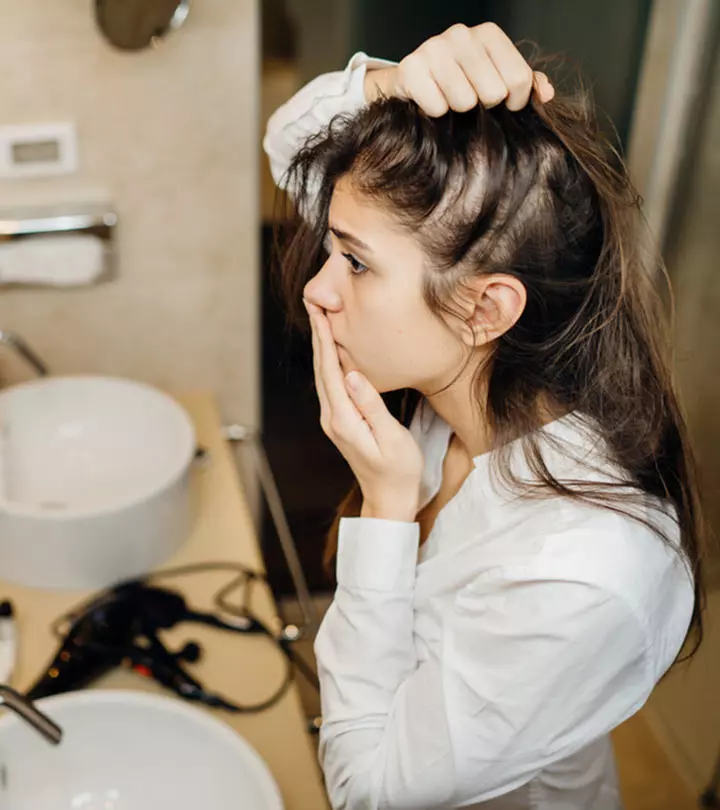
Image: Shutterstock
The usage of particular medications can lead to hair loss in some people. Here, we will discuss one such drug called gabapentin. Quite a few people have been complaining that gabapentin causes hair loss. If you are wondering about the effect of gabapentin on hair growth and health, you are at the right place. Gabapentin is an antiepileptic drug used to cure neurotic disorders like seizures. In this article, we will talk about gabapentin, its effects on hair, and tips for managing its side effects. Read on.
In This Article
What Is Gabapentin?

Gabapentin (GBP) is an antiepileptic drug. It is used to treat seizures and neuropathic pain. It is structurally similar to gamma‐aminobutyric acid or GABA, a neurotransmitteri A molecule that passes chemical signals from one brain cell or neuron to an intended target cell that may be another nerve, gland, or muscle cell. (1), (2). This medicine works on the central nervous system (CNS) to relieve pain. However, the exact mechanism of this drug is yet unknown. The U.S. FDA approves gabapentin for treating conditions like (3):
- Partial seizures
- Nerve pain
- Spinal cord injury
- Shinglesi A viral infection with painful rashes that happens when the chickenpox virus is reactivated in the body.
- Diabetic neuropathyi A type of nerve damage that occurs if you have high blood sugar. Symptoms include numbness and pain.
- Fibromyalgiai A disorder that causes widespread pain in muscles all over the body, accompanied by fatigue, sleeplessness, and distress.
- Restless legs syndromei A condition that causes an uncontrollable urge to constantly move the legs due to an unpleasant sensation.
It is available as either generic medication or branded as Neurontin and Gralise(3).
 Did You Know?
Did You Know?Being concerned about medications that cause hair loss is natural. Like several other medications, gabapentin also has some side effects, and one of them is hair loss.
Key Takeaways
- Gabapentin may cause hair loss as a side effect which may be reversible upon discontinuation of the medication.
- Other side effects of gabapentin apart from hair loss include drowsiness, dizziness, blurred vision, and swelling of extremities.
- Avoid consuming alcohol while taking gabapentin.
- It is best to consult a healthcare professional if experiencing any side effects while taking gabapentin.
Does Gabapentin Cause Hair Loss?
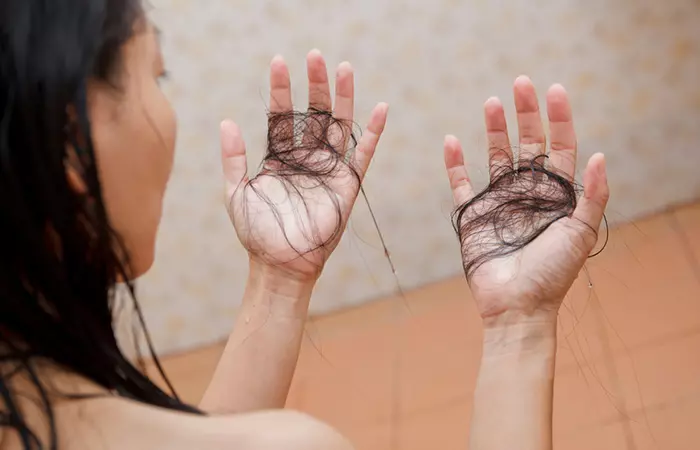
Yes. A few studies indicate that gabapentin may cause hair loss. However, further research is required to establish if it is a widespread side effect. Although alopeciai Complete or partial hair loss from the scalp and the body mainly caused due to auto-immune disorders. is an occasional side effect of anticonvulsants, there are only two cases reported for gabapentin.
A case study involving a 28-year-old woman found that gabapentin induced significant hair loss. The woman reported hair loss after a week of taking 1800 mg/day dose of gabapentin (2).
Another study also observed hair loss and alopecia in three patients after six months of starting treatment (5). In both cases, hair fall stopped after discontinuing gabapentin.
However, further case studies are required to determine the extent of hair loss induced by gabapentin. Like any other drug-induced hair loss, gabapentin-induced hair loss is also reversible.
Does Hair Grow Back After Stopping Gabapentin?
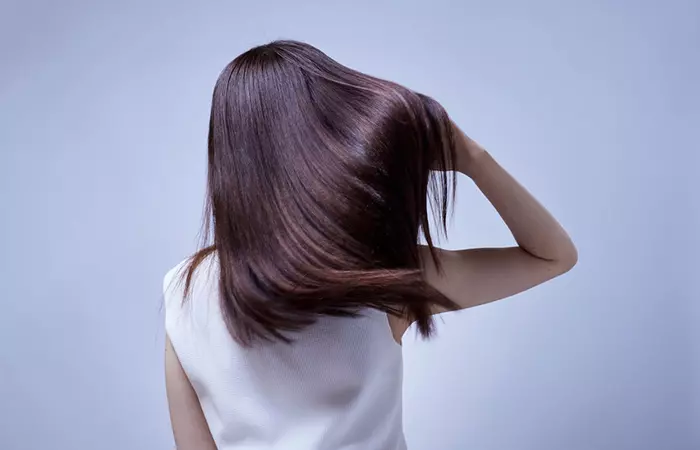
Yes. It is likely that once you stop taking the drug, hair growth may resume.
There are only two instances where the researchers indicated that gabapentin-induced hair growth could resume once the medication is discontinued. On the contrary, another review suggests that gabapentin may lead to permanent hair loss (1). The manufacturing company does not list this long-term side effect.
None of the studies are conclusive, and further research is needed to verify whether or not gabapentin-induced hair loss is reversible.
Gabapentin usage may also cause other side effects. Scroll down to learn more.
What Are The Other Side Effects Of Gabapentin?
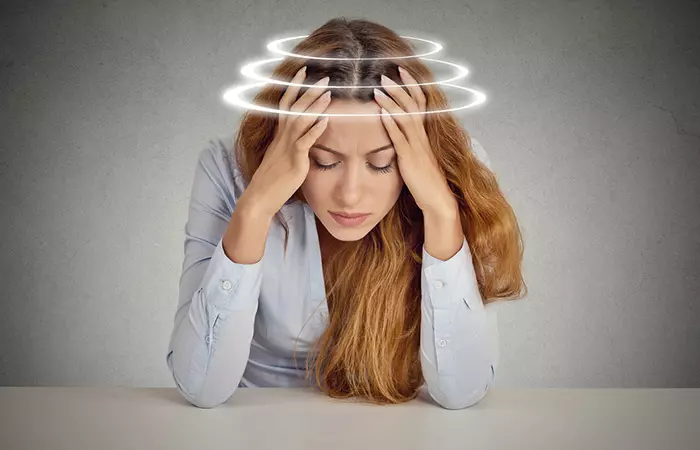
According to the fact sheet provided by the FDA, some of the common side effects of gabapentin are (3):
- Drowsiness
- Dizziness
- Blurry or double vision
- Coordination and concentration issues
- Swelling of the hands, legs, and feet
- Fatigue (2)
- Nausea and vomiting (2)
FDA also warns about some severe side effects of gabapentin if taken with other medications like opioids or drugs that suppress the CNS (3). The side effects include:
- Confusion or disorientation
- Unusual dizziness or lightheadedness
- Extreme sleepiness
- Unresponsiveness
- Bluish-colored or tinted skin, especially on the lips, fingers, and toes
Even when you stop taking the medicine, there might be side effects. Linda, a YouTuber, shared her personal and challenging experience related to her use of Gabapentin. While she was told that it was a relatively safe drug, she decided to stop taking it. She said, “Within 24 hours I started not being able to sleep. I got really anxious. I started having some night sweats and worse I started having diffuse just pain all over all over my body (i).”
 Quick Tip
Quick TipIf you are taking gabapentin and are experiencing any of the side effects, consult your doctor immediately.
Gabapentin is an FDA-approved prescription medicine used to treat various nerve-related problems, including epilepsyi A neurological disorder where unusual brain activity results in seizures and convulsions or periods of strange behavior, feelings, and loss of awareness. and neuropathic pain. This drug acts on the central nervous system (CNS) to treat pain. A few studies have found a correlation between gabapentin and hair loss, but further research is needed to confirm the connection. If you notice hair loss while using this medicine, talk to your doctor. The FDA also advises that gabapentin may interact with other medications such as opioids or CNS depressants and cause serious side effects. Therefore, always use it under the supervision of a doctor.
Frequently Asked Questions
Does gabapentin show up in hair follicles?
Possibly. According to anecdotal evidence, it is unusual to test for gabapentin in the follicles, but it is possible to find the compound up to 90 days after exposure.
Can I have a glass of wine while on gabapentin?
No. You should avoid drinking alcohol while on gabapentin as it may lead to adverse effects.
Is it OK to take gabapentin and tylenol together?
Possibly. While there are no known interactions between gabapentin and tylenol, it is recommended to consult your doctor before taking them together.
Illustration: Does Gabapentin Cause Hair Loss?
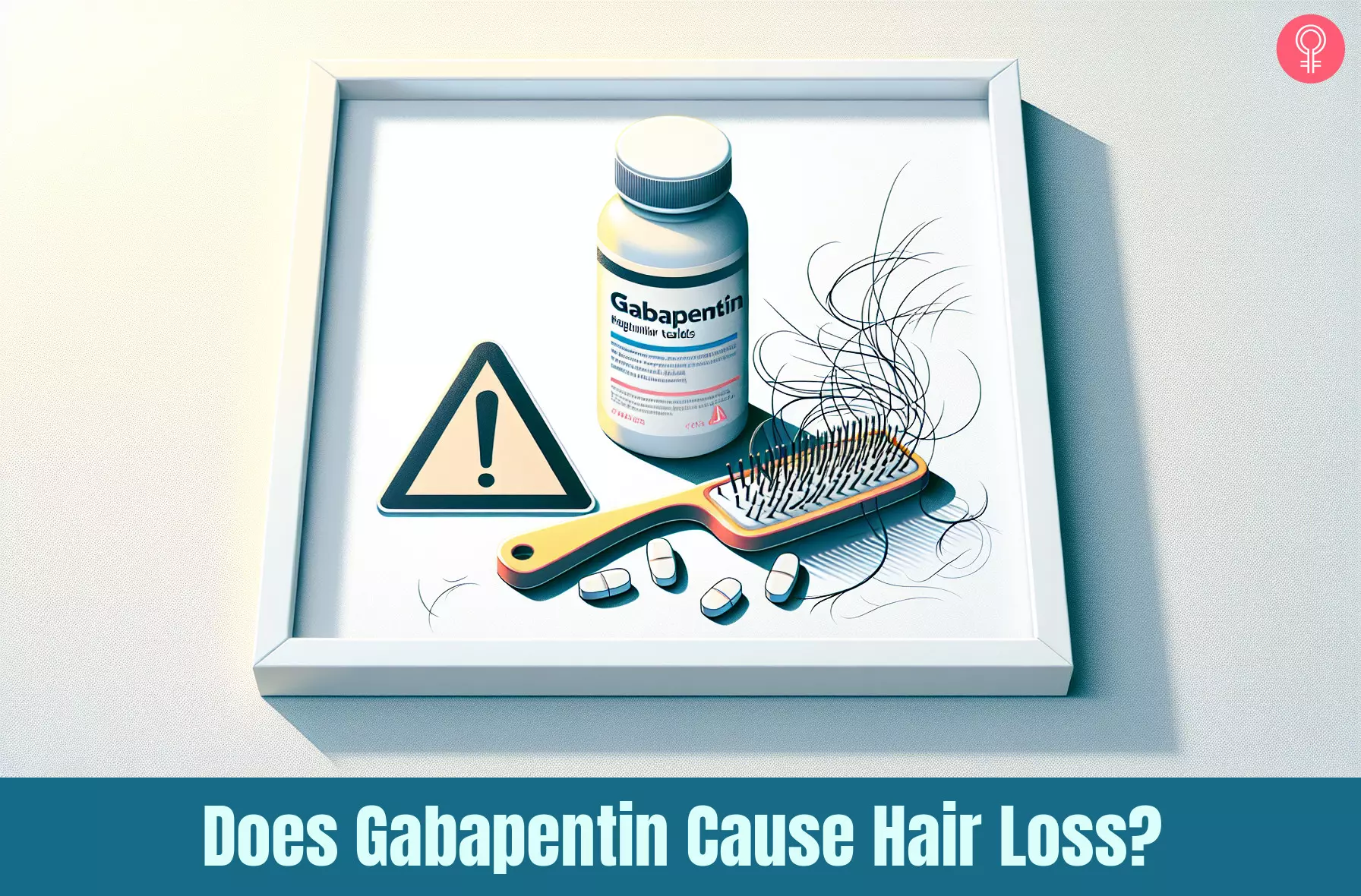
Image: Dall·E/StyleCraze Design Team
References
Articles on StyleCraze are backed by verified information from peer-reviewed and academic research papers, reputed organizations, research institutions, and medical associations to ensure accuracy and relevance. Read our editorial policy to learn more.
- Gabapentin: An update of its pharmacological properties and therapeutic use in epilepsy
https://www.ncbi.nlm.nih.gov/pmc/articles/PMC3263084/ - Alopecia Associated with Gabapentin in the Treatment of Neuropathic Pain
https://www.jpsmjournal.com/article/S0885-3924(08)00650-7/fulltext - FDA warns about serious breathing problems with seizure and nerve pain medicines gabapentin (Neurontin, Gralise, Horizant) and pregabalin (Lyrica, Lyrica CR)
- Notes from the Field: Trends in Gabapentin Detection and Involvement in Drug Overdose Deaths — 23 States and the District of Columbia, 2019–2025
https://www.cdc.gov/mmwr/volumes/71/wr/mm7119a3.htm
https://www.fda.gov/drugs/drug-safety-and-availability/fda-warns-about-serious-breathing-problems-seizure-and-nerve-pain-medicines-gabapentin-neurontin - A Postmarketing Surveillance Study of Gabapentin as Add‐on Therapy for 3,100 Patients in England
https://onlinelibrary.wiley.com/doi/full/10.1046/j.1528-1157.2002.01702.x - Gabapentin-related suicide: Myth or fact?
https://www.ncbi.nlm.nih.gov/pmc/articles/PMC6213802/
Read full bio of Dr. Shruti Chavan
Read full bio of Annie Jangam
Read full bio of Eshna Das
Read full bio of Swathi E





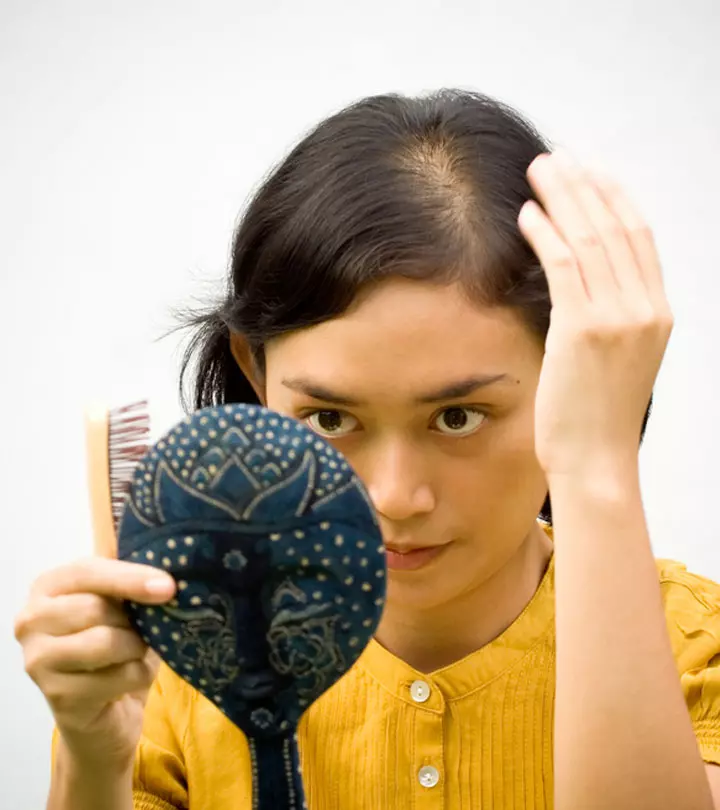
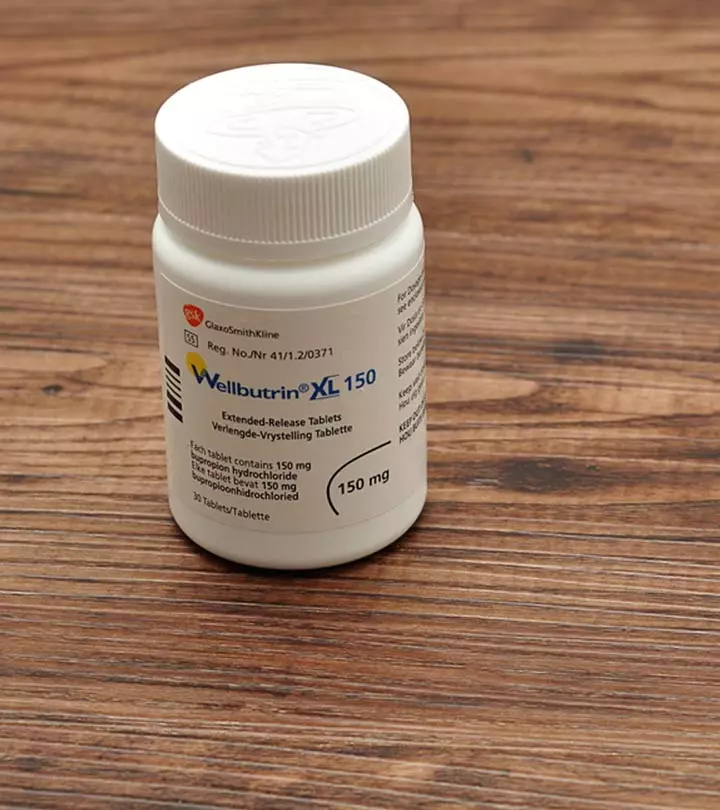

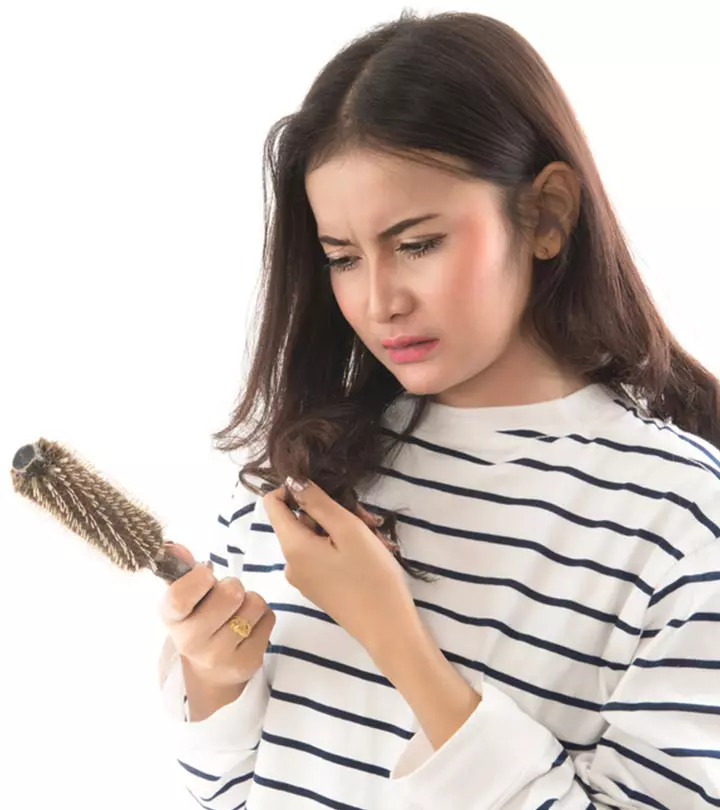

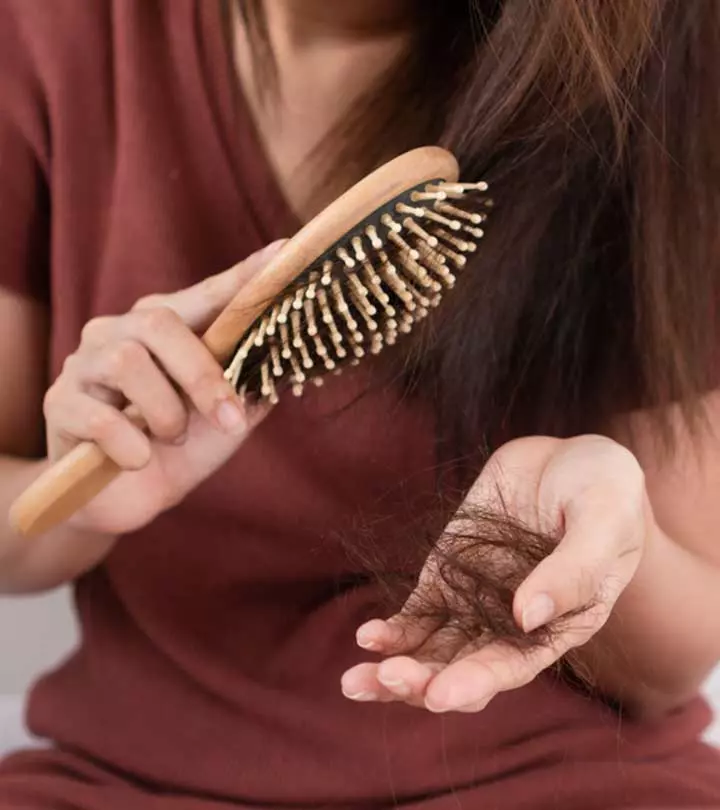





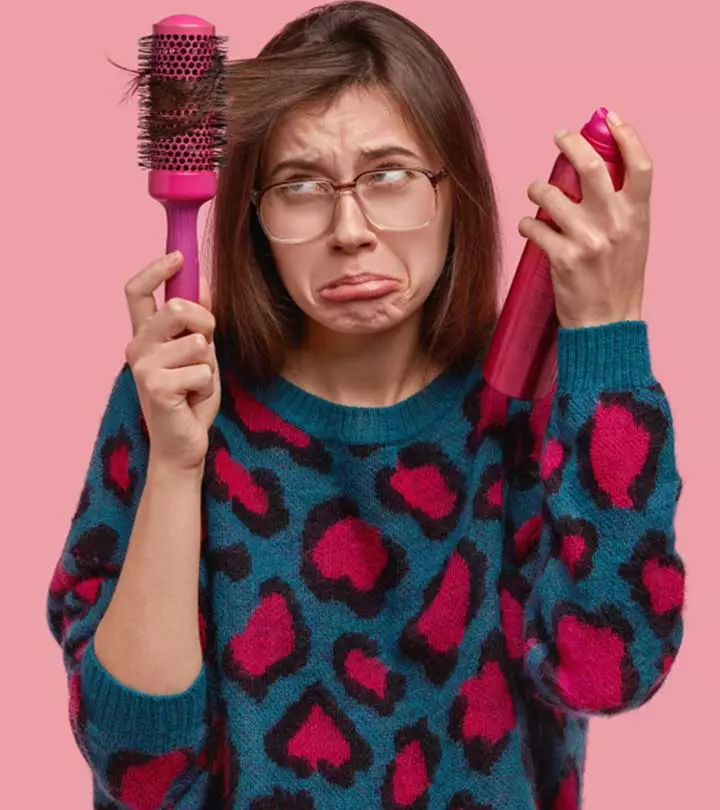

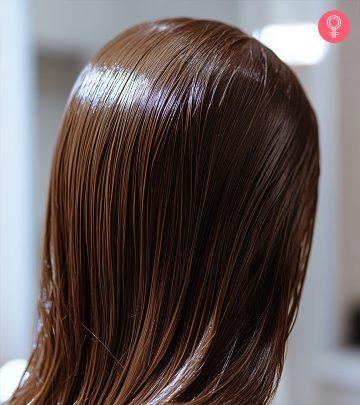







Community Experiences
Join the conversation and become a part of our empowering community! Share your stories, experiences, and insights to connect with other beauty, lifestyle, and health enthusiasts.